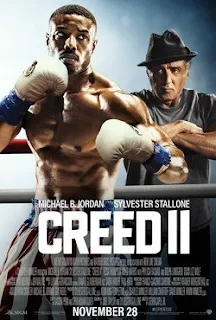TRASH IN MY EYE No. 18 of 2023 (No. 1907) by Leroy Douresseaux
Babylon (2022)
Running time: 189 minutes (3 hours, 9 minutes)
MPA – R for strong and crude sexual content, graphic nudity, bloody violence, drug use, and pervasive language.
WRITER/DIRECTOR: Damien Chazelle
PRODUCERS: Olivia Hamilton, Marc Platt, and Matthew Plouffe
CINEMATOGRAPHER: Linus Sandgren (D.o.P.)
EDITOR: Tom Cross
COMPOSER: Justin Hurwitz
Academy Award nominee
DRAMA/HISTORICAL
Starring: Brad Pitt, Margot Robbie, Diego Calva, Jovan Adepo, Jean Smart, Li Jun Li, Olivia Wilde, Telvin Griffin, Flea, Eric Roberts, Max Minghella, Jeff Garlin, Ethan Suplee, and Tobey Maguire
Babylon is a 2022 period film, drama, and black comedy from writer-director Damien Chazelle. The film chronicles the rise and fall of several Hollywood characters as the film industry transitions from silent films to sound films in the late 1920s and early 1930s.
Babylon opens in the Bel Air neighborhood of Los Angeles, 1926. Manuel “Manny” Torres (Diego Calva), a Mexican immigrant, helps transport an elephant. It's destination is a debauched bacchanal (party) at the lavish mansion of Don Wallach (Jeff Garlin), chief of Hollywood's Kinoscope Studios, which produces silent films. It is there that Manny meets a young woman who has given herself the name, Nellie LaRoy (Margot Robbie). She is brash, ambitious, and declares that she is a “star” from New Jersey, and Manny is quickly smitten with her.
Manny and Nellie soon cross paths with the party's other colorful attendees, including the Chinese-American, lesbian, cabaret singer, Lady Fay Zhu (Li Jun Li), and the Black American jazz trumpeter, Sidney Palmer (Jovan Adepo). All four of them are going to find a place in the ecosystem of Hollywood, playing an important part in making silent films. None of them will be as big as one of Hollywood's greatest silent film stars, Jack Conrad (Brad Pitt), who seems to be married as often as he is starring in a new silent film epic.
But just a year later, in 1927, the first sound film, The Jazz Singer, arrives, and everything begins to change – rapidly. A world of out-sized ambition and outrageous excess starts pretending to be a tad bit more conservative. So will any of the stars of silent film transition to the new world of sound film, also known as “talkies?” Will Jack Conrad remain a star? Is there still a place for Fay Zhu? And what of the newcomers, Nellie, Manny, and Sidney?
For me, Babylon is the film that delivers the way I was told Damien Chazelle's earlier film, La La Land (2016), would, but did not. What some critics saw as overwhelming in Babylon, I see as exhilarating spectacle. In a way, Babylon isn't so much about the end of the silent film era and the beginning of sound films as it is a celebration of Hollywood's glitz and glamour, which has enthralled audiences around the world for over a century. Chazelle treats Hollywood's excess as a wonderful, magical thing. Debauchery is loud, proud, and colorful. Why be conservative and safe when the audience for Hollywood's films want the opposite. Even as silence gives way to sound, films remain weird, wild, and wonderful, even if the people behind them pretend to have cleaned up their act and grown up.
The film's production values: cinematography, costume and production design, sound, lighting, and editing play up the fun part – the hedonism and the revelry. Babylon is one of the best-looking films of this still young century, and when I currently think of the word “cinematic,” I think of it.
The film has a number of good performances, but I will fault Chazelle for a screenplay that doesn't really immerse itself into the characters. This film isn't into the characters the way it dives into the spectacle and the darkness behind the Hollywood film industry and the lifestyle of the people in front of and behind the cameras. As much as they try, Brad Pitt and especially Margot Robbie and Diego Calva cannot really raise their characters above the sound and fury of Babylon. Speaking of sound and fury, Justin Hurwitz's score for Babylon is a thing of magic; it never lets Babylon's narrative, drama, or action fall.
I know that Babylon is a polarizing film among film critics, movie reviewers and audiences. I see it, however, as the work of a highly skilled writer-director, Damien Chazelle, who can do great things in movies. But will he? As far as I'm concerned, he has delivered with Babylon.
9 of 10
A+
★★★★+ out of 4 stars
Sunday, April 30, 2023
NOTES:
2023 Academy Awards, USA: 3 nominations: “Best Achievement in Production Design” (Florencia Martin and Anthony Carlino), “Best Achievement in Music Written for Motion Pictures-Original Score (Justin Hurwitz), and “Best Achievement in Costume Design: (Mary Zophres)
2023 BAFTA Awards: 1 win: “Best Production Design” (Florencia Martin and Anthony Carlino); 2 nominations: “Best Costume Design” (Mary Zophres), and “Original Score” (Justin Hurwitz)
2023 Golden Globes, USA: 1 win: “Best Original Score – Motion Picture” (Justin Hurwitz); 4 nominations: “Best Motion Picture - Musical or Comedy,” “Best Performance by an Actor in a Supporting Role in Any Motion Picture” (Brad Pitt), “Best Performance by an Actor in a Motion Picture-Musical or Comedy” (Diego Calva), and “Best Performance by an Actress in a Motion Picture-Musical or Comedy” (Margot Robbie)
The text is copyright © 2023 Leroy Douresseaux. All Rights Reserved. Contact this blog or site for reprint and syndication rights and fees.
------------------------------
-------------------------------
Amazon wants me to inform you that the affiliate link below is a PAID AD, but I technically only get paid (eventually) if you click on the affiliate link below AND buy something(s).










